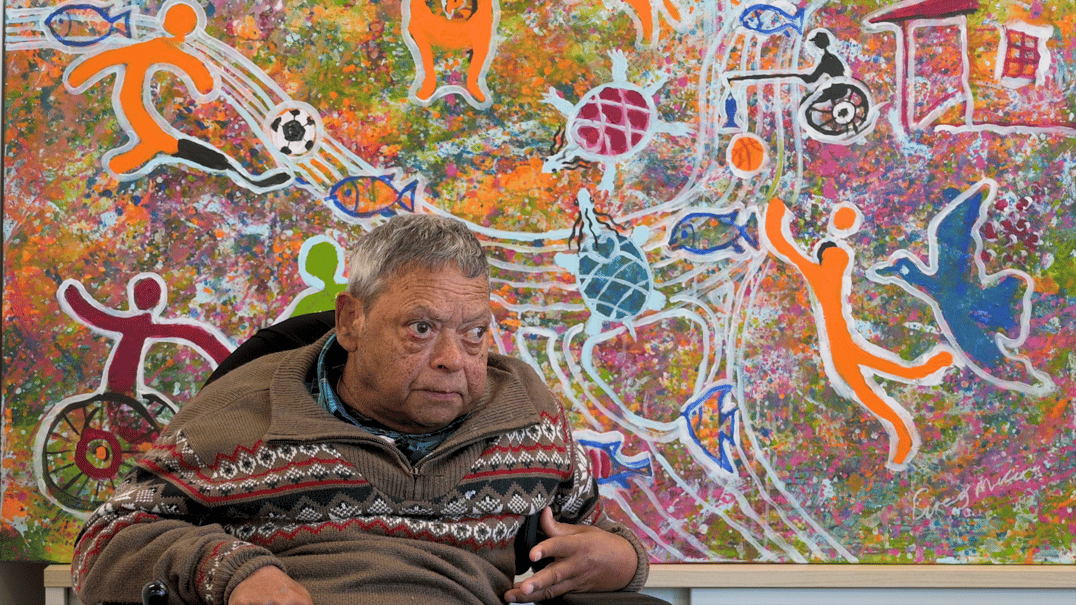Scope unveils Reflect Reconciliation Action Plan
Scope is proud to announce the release of its inaugural Reflect Reconciliation Action Plan (RAP), marking a significant step in its commitment to reconciliation, inclusivity, and respect.

Managing and mitigating behaviours of concern is no easy task, but with the right resources, it can be life-changing.
Like many of us, Rob was forced to spend his birthday away from family during Victoria’s gruelling lockdown. This time last year, the thought of cancelling his 60th birthday party would have been enough to send Rob into an antisocial and violent spiral.
Rob has spent his entire adult life in institutional settings, beginning when he was just 14 years old.
Due to the severity of his behaviour, which could escalate to throwing household items and even furniture at team members, Rob lived in units that were restrictive.
He rarely accessed the community, did not interact with other housemates, and preferred to eat his meals alone. Any slight change in plans was enough to trigger an incident.
Since moving into the purpose-built house in Wilson Street in late 2019, Rob’s dedicated house team helped him feel comfortable, and were able to dig a little deeper to explore his behaviour.
“I love my little house,” Rob said.
In this smaller environment, it became apparent that the cause of Rob’s behaviours of concern was feelings of anxiety, which was linked to his Fragile X.
The team at Wilson Street collaborated extensively with Rob’s GP and his behavioural specialist to treat the anxiety proactively, rather than just limit his behaviours. His medications were amended to treatments that specifically targeted his anxiety, but that was just the beginning.
Jane Wynne, House Supervisor, said the team discussed implemented strategies in their own day-to-day activities to ensure Rob feels secure.
“We make sure that Rob is kept in the loop of everything that is happening,” Jane said.
“He has a calendar in his room that lets him know what is happening, when he has appointments and when staff are going on leave.”
These strategies include other service providers and carers in Rob’s life.
“Day programs will contact us so that we can prepare him to any changes in staff working with him for the day,” Jane said.
Ensuring Rob’s environment is stable and predictable has resulted in a decrease of unscheduled, ‘as needed’ medications (PRN) from around 15 times a month, to just once a month.
Today, Rob is able to identify when he is becoming anxious and is able to communicate this with staff.
He enjoys accessing the community once a week and purchases groceries to prepare an evening meal with his support worker.
Rob’s helpful team also support him to buy his lunch once or twice a week, buy his own clothes and even build his tolerance for bus travel so that he can visit his sister in Casterton.
“My behaviour is much better,” Rob said.
“I go to the butchers to pick what we have for tea…I get to have chops every Monday.”
More choice, control and independence in his life means Rob is reaching goals that once seemed impossible.
With his behaviour under control, Rob’s funny and friendly side is now shining through. He has quickly become a BBQ master and loves his new freedoms.